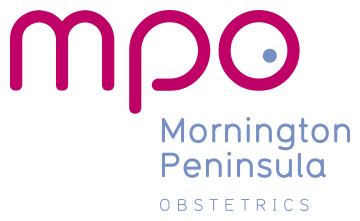Pregnancy Care
Antenatal Visits
Your first appointment will be at 9-10 weeks of pregnancy. A full history and examination will be taken and an ultrasound may be performed. A plan for your pregnancy care will be made.
Please allow approximately 30 minutes for your initial appointment and 15 minutes for all appointments thereafter.
Following the birth of your baby a post natal check up will be arranged. This will occur 6-8 weeks post delivery and will take approximately 20 minutes.
Routine Pregnancy Investigations
If you have a Rhesus negative blood group this screen will be repeated later in the pregnancy and treatment offered to prevent complications in future pregnancies.
If anaemia is detected, iron or other vitamin supplementation may be recommended.
HIV, Hepatitis and Syphilis require monitoring or treatment in pregnancy to minimize risks to mother and baby. All women are offered infection screening regardless of risk factors. Women not immune to rubella require no treatment but should be immunised post delivery.
Many well women are deficient in Vitamin D and severe deficiency has been associated with pregnancy complications. There is currently no strong evidence that supplementation improves outcomes. Research is ongoing in this area and as Vitamin D replacement is safe, this seems to be a reasonable option during pregnancy.
Urinary tract infection, with or without symptoms, is more common in pregnancy. Routine testing is recommended as antibiotic treatment can easily manage an infection and has been shown to reduce the risk of preterm labour.
The risk of Down syndrome and other chromosomal and congenital abnormalities can be assessed by a combination of a blood test and ultrasound in the first trimester or a second trimester blood test. If a high risk screening test result is found diagnostic testing can be offered.
An ultrasound is performed at 18-20 weeks to assess fetal development and growth, the position of the placenta and amount of fluid surrounding your baby. This is a screening test for fetal anomalies however not all conditions can be diagnosed by ultrasound.
Diabetes in pregnancy affects up to 12% of pregnant women with risks to both mother and baby. A 2hr fasting blood test performed at 26-28 weeks can diagnose this condition allowing for it to be managed appropriately. If you are at higher risk of diabetes this test may be performed earlier in your pregnancy and repeated at 26-28 weeks.
GBS is a bacterium present in the bowel, urinary and genital tracts of approximately 1 in 4 women. It is not a cause of infection or illness in those women but if passed to the baby during pregnancy or delivery can cause infection in the baby. Of those babies whose mothers carry GBS, 1 in 200 will develop a serious infection. Swabs taken from the vagina and perianal area in the month before your due date can determine the presence of the bacteria allowing for preventative antibiotics to be given whilst in labour.
Please Note:
Additional tests and ultrasounds may be recommended during the pregnancy depending on the health of you and your baby.
Complicated Pregnancies
There are a small number of medical problems and pregnancy complications that may mean delivery at the Bays Hospital is not recommended. Dr Griffin or Dr Roberts are able to offer these patients private care at Peninsula Private Hospital or Jessie MacPherson at Monash Medical Centre where appropriate. This includes patients with a BMI >35.
At MPO we are a keen advocate of safe vaginal births. Where appropriate we offer vaginal delivery of twin pregnancies and in pregnancy following cesarean section (VBAC).
Weekend/Leave Cover
Dr Griffin, Dr Roberts and Dr Swanson endeavour to be available to their patients wherever possible. They live locally to the hospital and can attend at short notice. If they are not available cover will be provided by one of the Peninsula obstetricians; Dr Keith How, Dr Andy Griffiths, Dr Petra Porter, Dr David Luiz or Dr Melwyn D’Mello.
